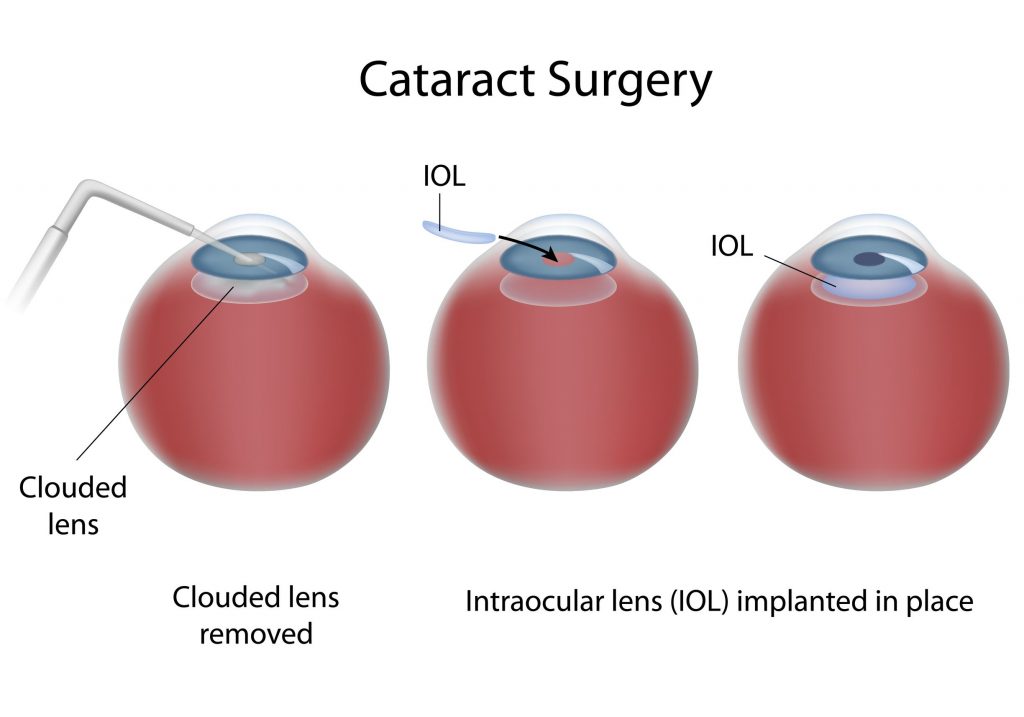Cataract Surgeons
If you are suffering vision loss from cataracts, a simple procedure can restore your vision and your quality of life. Cataract surgery removes the natural lens of your eye and replaces it with an artificial intraocular lens (IOL). Your new lens will never develop cataracts. The surgery itself only takes a few minutes, and general anesthesia is not involved. If you currently wear reading glasses, you can choose an IOL that will allow you to see both near and far.
Cataract Surgery Procedure
You will be awake during cataract surgery. General anesthesia is not used in most cases. However, you may be given a sedative to help you relax and some patients do fall asleep. Cataract surgery is more invasive than LASIK, but still only takes a few minutes.
Your eye will be numbed with drops or an injection. A small incision is made at the edge or your cornea, to give the surgeon access to your lens. In most cases, a technique called phacoemulsification (phaco) is used to break up the clouded lens and remove it with gentle suction. An IOL is inserted to replace your natural lens.
In most cases, no stitches are used. A shield is placed over your eye to protect it.
After your procedure, you will rest for about half an hour before going home. You must have someone drive you home. You will also need someone to drive you to your follow-up appointment the day after surgery.
Less Dependence on Glasses
In addition to correcting the vision loss caused by cataracts, cataract surgery can improve refractive errors. The type of correction depends on the type of IOL you choose. Standard IOLs are monofocal, meaning they have one focal distance. Typically, patients will choose to have this type of lens set for good distance vision and then rely on reading glasses for close vision. If you have relied on glasses or contacts for distance vision before cataract surgery, the surgery may eliminate that need.
Today, we also have several types of advanced IOLs that can give you good distance vision while also correcting presbyopia, so you will not have to rely on bifocals or reading glasses. Your ophthalmologist can help you decide which type of IOL is best for you.
To learn more about cataract surgery and your options, please search this directory for a list of ophthalmologists near you.

